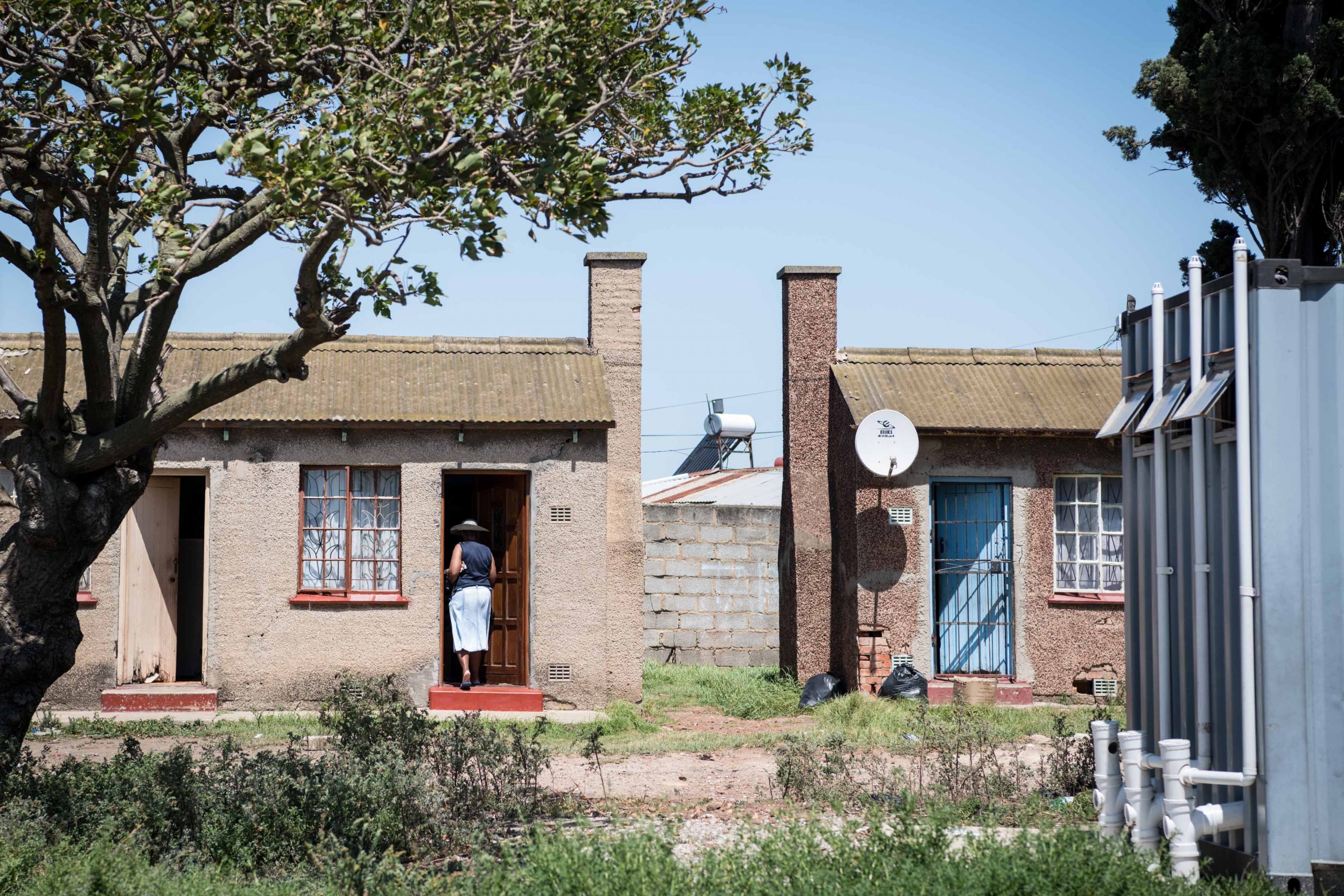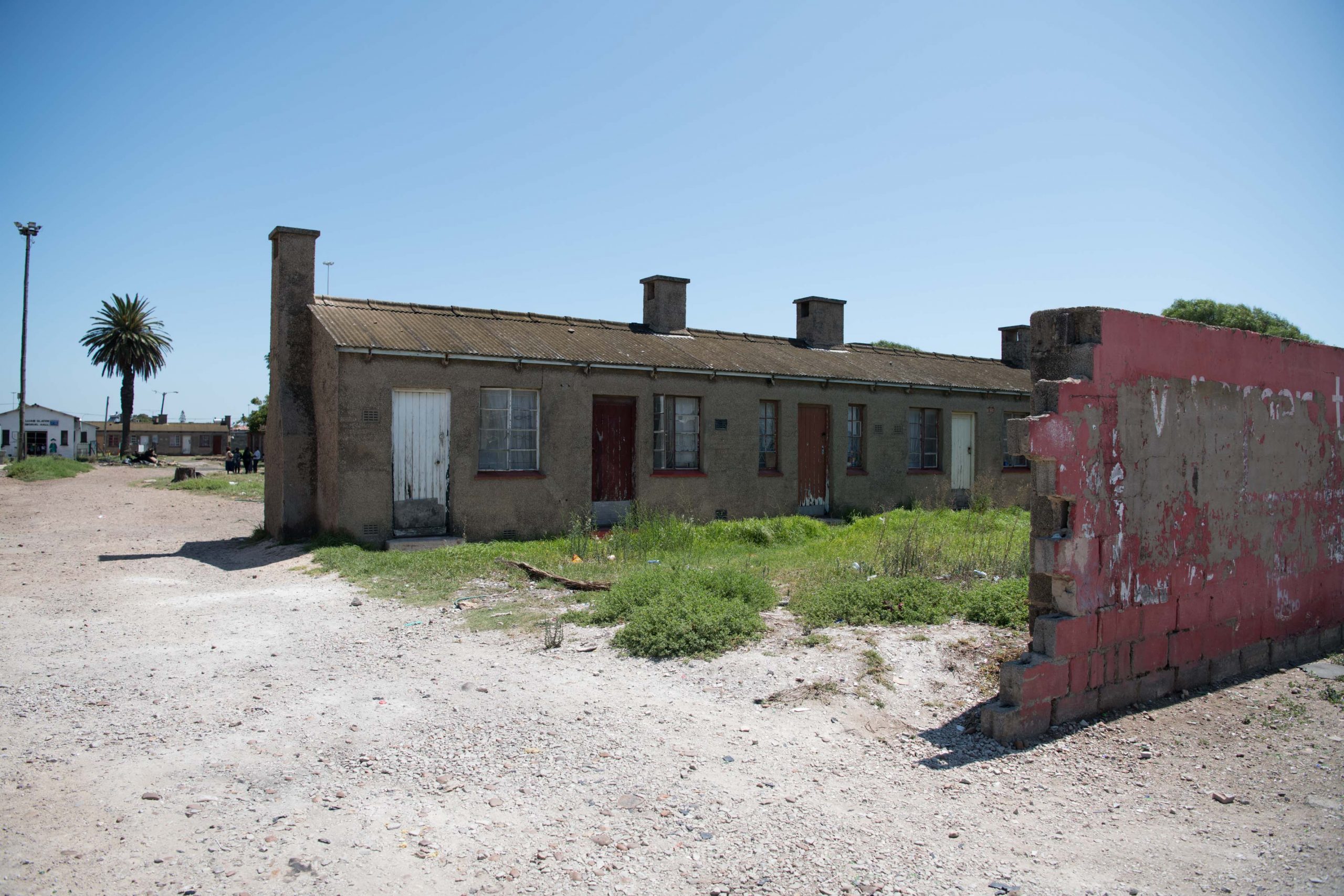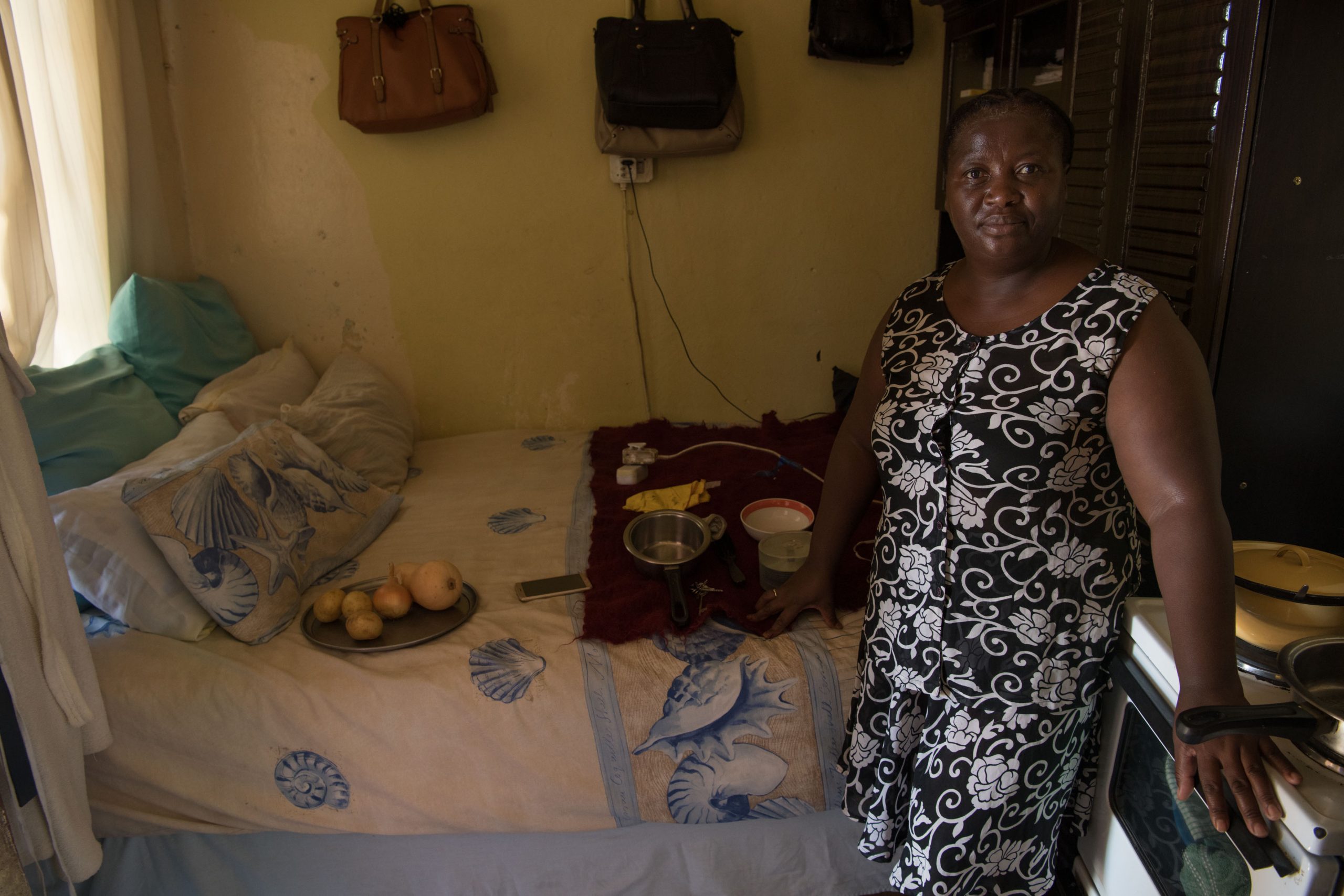Residents are dying a slow death in derelict hostel
Nelson Mandela Bay Municipality promised to build new homes for the residents of a condemned hostel built almost eight decades ago. But they are still living in cramped, unsanitary conditions.
Author:
4 March 2020

A hostel built 79 years ago in Port Elizabeth is now falling apart. But the residents have nowhere to go as the Nelson Mandela Bay Municipality has failed to build them alternative homes.
The hostel, Adcock Homes in Jabavu Street, New Brighton, houses an estimated 180 people, with each family crowded into one tiny room with no kitchen or bathroom. There is only one toilet for every five rooms – often 20 people sharing one toilet – and no showers or baths. Eight portable toilets and showers were brought in recently, but five have stopped functioning.
Once a double bed and wall unit is placed inside a room, there is only enough space to take one small step. Former ANC councillor Vuyani Dyantyi has been campaigning for more than a decade for the hostel to be rebuilt.

“These residents are like a fish growing in a bowl who get deformed from a lack of physical or mental space. You cannot think beyond the space you are in. There are four people living in one room, breathing the same carbon dioxide all night long. Suddenly TB breaks out here and people want to know why. The kids also get sick, they get rashes,” Dyantyi says.
The hostel was built in 1941 as part of a housing scheme for “sub-economic Africans”. A 1956 apartheid government propaganda brochure trumpets the complex as part of the enhancement of the New Brighton township, ignoring the fact that New Brighton was only established to house black people who were forcibly removed from Port Elizabeth’s beachfront suburbs.

A crumbling home for the elderly
By the 1980s, the elderly had been moved to another facility. Instead of building more homes, the municipality moved families on the housing waiting list into the tiny rooms at the hostel.
Vuyiswa Pikoli, 71, arrived in January 1984. She lives with her three grandchildren in her room.

“Sometimes they [the municipality] say they will move us. Other times they say they will build a block of flats here,” says Pikoli, who adds that her home leaks when it rains, has a swollen door that cannot close properly and that the only window does not open. “We are staying with mice. If you stay here, you will see the mouse running in the house,” she adds.
Pikoli expected that after 1994, the rooms would be upgraded to family units as the ANC had promised. But this never happened. She is part of the self-described Group of Old Ladies who are leading the struggle for RDP homes to be built on the hostel land. Nobody wants to leave Jabavu Street. Because the hostel was built around a big field, there is more than enough land to build two-bedroom cottages for all the current residents.

Phumla Gquela, 60, lives in her room with three children.
“Yoh! I have been here more than 20 years. My mom was staying here. I’m not working, there are no showers here. We’ve been doing this waiting list for a long, long time,” she says. “It is terrible here, the toilet situation, the small rooms, the drains are blocked. Yet we always vote, vote, vote for freedom!”
Dyantyi, who was a councillor until 2016, thought his campaign had succeeded when a survey found the rooms unfit for human habitation and the Nelson Mandela Bay council passed a resolution in September 2016 to demolish the rooms and build family units.

‘A dying condition’
“I walked a long way with the people here and tried all means possible. Up until now, nothing has happened. I am talking about a formal decision, a commitment by council. But they have not done anything. This is not a living condition. It is a dying condition,” says Dyantyi.
Two other members of the Group of Old Ladies are Joyce Kepe, 86, and Nonkululeko Takane, 80.
Kepe can barely walk as a result of osteoarthritis in her legs. Her bed fills almost the entire room and she does not want to be photographed lying down. “I can’t do nothing because of pains. I want a house with a toilet inside. People here have to walk a long way for the toilet, so I use a bucket,” she says.
She has a daughter who is willing to care for her full-time but cannot do so because there is no space for her and Kepe’s two grandchildren to live in the tiny room. Kepe’s daughter can only afford to visit a few times a week.
“The neighbours help me a lot. But my daughter and I would love to stay together. I want to stay here with an inside toilet, a kitchen and a bedroom. I am not moving anywhere,” says Kepe.

Takane is a double leg amputee. Like Kepe, she is confined to her room. Her children live next door. She moved into the Adcock hostel in 1973. “We have been sent from pillar to post. We went to many different offices to write all our names on many different housing lists. You can find all our names all over on lists that promise us a house.”
“I don’t want to die here in a one-room. I would like to die like other people in a decent place. Because of this place, you might even find that next week I am dead already,” Takane says.
Gquela says the rooms are killing Takane and Kepe. “They are dying, whether the politicians like it or not,” he says.

Must remain in Jabavu Street
The residents insist that they want to remain in Jabavu Street. They are concerned that when the development finally comes, the government will scatter them to different far-flung townships. They describe themselves as staunch ANC members but are angry with the ruling party. “We are all ANC here, but the ANC failed us. We are crying on deaf ears,” says Pikoli.
“I don’t know if I will keep voting ANC because we are very disappointed and it’s been years,” says Gquela.
The Nelson Mandela Bay Municipality would not say what its plans are to implement the 2016 council resolution to rebuild the hostel.

Municipal spokesperson Mthubanzi Mniki would only comment on the state of the municipality’s old age homes in general, and not on the Adcock hostel situation.
“Maintenance at old age homes is not a once-off project, it’s ongoing. Substantial progress has been made to improve conditions at these homes,” he said. Mniki declined to elaborate on the details of this substantial progress.
When asked the reason for the long delay in implementing the 2016 council resolution, Mniki said: “If the supply chain processes run smoothly, there will be no reason for the R8 million not to be spent in this financial year.” The maintenance plan is based on a budget of R8 million, but Mniki declined to explain what this budget encompasses.

